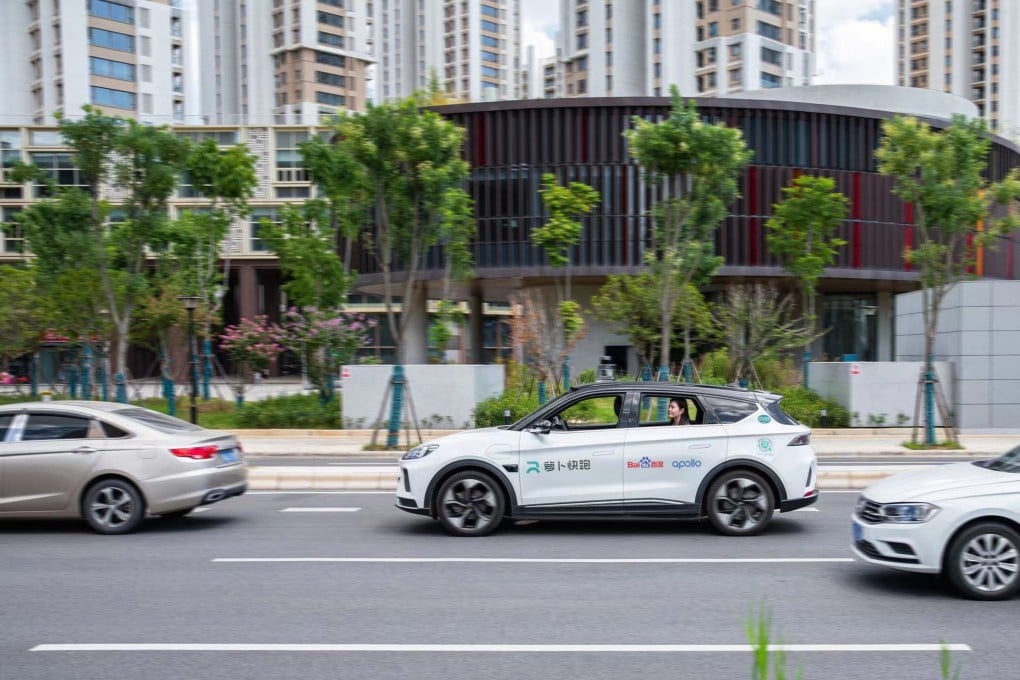Baidu sees surge in autonomous taxi usage, boding well for driverless technology in the world’s largest EV market
- Last November, Baidu and Pony AI became the first two mainland firms to be allowed to charge passengers using their autonomous taxis
- Analyst says ‘rising interest in robotaxis reflects increasing demand for fully driverless passenger vehicles used by households’

Beijing-based Baidu, which has pushed into artificial intelligence in recent years, said on Tuesday that its Apollo Go robotaxi division completed 474,000 rides between July and September, compared to 287,000 rides recorded in the previous quarter.
The number of rides in the third quarter represented a year-on-year leap of 311 per cent. Each autonomous taxi in the first-tier cities of Beijing, Shanghai, and Guangzhou completed 15 rides per day.
“We believe that our strong and improving safety track record in autonomously transporting passengers on public roads provides a strong endorsement for more cities to issue permits for fully driverless ride hailing,” the company said in a statement.
Baidu is one of two companies currently spearheading robotaxi services in China. Last November, Baidu and Pony AI became the first two mainland operators to be allowed to charge passengers using their autonomous taxis within a designated area covering 60 square kilometres in Beijing.
However, the autonomous taxis were still required to have a human “security officer” behind the wheel in case of an emergency.